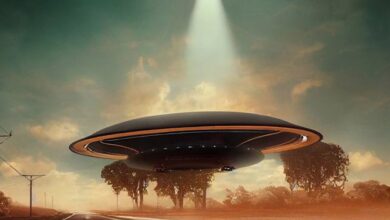Humanity’s long-term survival requires space colonization

Colonization of one group of people by another has been a constant theme in human history. Europeans took the practice to a truly global level in the 19th century, imposing their culture and rules on much of the rest of the world, and giving colonization a bad rap in the process.
But from a biological point of view, colonization is perfectly normal. Species compete for habitats and resources all the time, and any species that doesn’t play the game will go extinct. There is no rest for the winners either because the habitat you live in today may not be available tomorrow. Volcanic eruptions and other natural catastrophes can turn your home into a hellscape, and some events — asteroid impacts, supernova explosions, or nearby gamma-ray blasts — can make a whole planet uninhabitable.
It seems prudent, then, for a technologically advanced life form to become a multi-planetary species to avoid possible extinction. That goes for alien civilizations as well. While we (or they) may be able to protect ourselves from certain calamities such as asteroid impacts, there’s not much we can do about a supernova. Colonizing other planets might be the only realistic route to long-term survival.
The ethics of space colonization
That leaves the question of how best to go about it. If we adhere to high ethical standards, we may decide to colonize only those planets that don’t already have indigenous life, so that our survival doesn’t result in their demise. The ethics could get tricky, however. Would we extend that principle to protecting even the lowliest microbes on another planet, even if our own survival were at stake? What if we thought no life existed on Planet Z, but found out after we arrived that it is actually inhabited?
Just how sticky a dilemma this becomes will depend on how common life is in the Universe. If it’s rare, there may be a near-infinite number of planets and moons that are habitable but uninhabited. In that case, it almost seems our duty to spread life — precious rarity that it is — to other worlds. But if there already is lots of life out there, as the Cosmic Zoo hypothesis implies, we will have to tread more cautiously. Don’t worry, though — there should still be plenty of habitable but uninhabited planets to provide a new home.
Would aliens take this same high road when venturing into interstellar space? Contamination may not be a significant problem if the alien visitors are AIs. But a full colonization effort would require biological beings. Luckily, there may be good practical reasons to respect indigenous life, beyond the ethical considerations. The visitors would want to carefully avoid toxic interactions with the indigenous biosphere (think War of the Worlds) so as not to endanger themselves.
Directed panspermia
There is also another, more patient strategy for the aliens to follow. They could just opt to send a probe with seeds or dormant microbes, and let evolution take its time, eventually resulting in complex and intelligent life. In a famous paper called Directed Panspermia published exactly 50 years ago, the Nobel laureate Francis Crick and Leslie Orgel considered the possibility that an alien civilization may long ago have seeded Earth in exactly this way. At a conference years after the paper came out,I asked Orgel about the article and whether he and Crick had written it out of frustration over the apparent lack of progress in understanding the origin of life. He seemed a bit offended, and claimed the paper was more like a joke, since Crick could get anything published after he received the Nobel Prize.
But let’s take their idea seriously for a minute. Within a few years, we probably will be able to do what Crick and Orgel only suggested as a thought experiment. Microbial life can survive for millions of years in a dormant state, so we could put a well-protected biological payload on a rocket, shoot it to the nearest exoplanet that we deem habitable, and drop it into some alien ocean. The question is whether we should — and whether an alien culture would (or, in Crick and Orgel’s scenario, already did).
We don’t need to invoke panspermia to explain life on Earth, however. There are good reasons to believe that it evolved here naturally. The elemental ingredients of biological cells resemble to a large extent the chemical makeup of our planet, and the interior of cells, even our own blood, is similar to salt water, the medium in which we think terrestrial life originated. Unfortunately, though, we still lack a comprehensive explanation for how life originated on Earth. And until we have one, Crick and Orgel’s idea — whether it was meant as a joke or not — is still a viable hypothesis.




